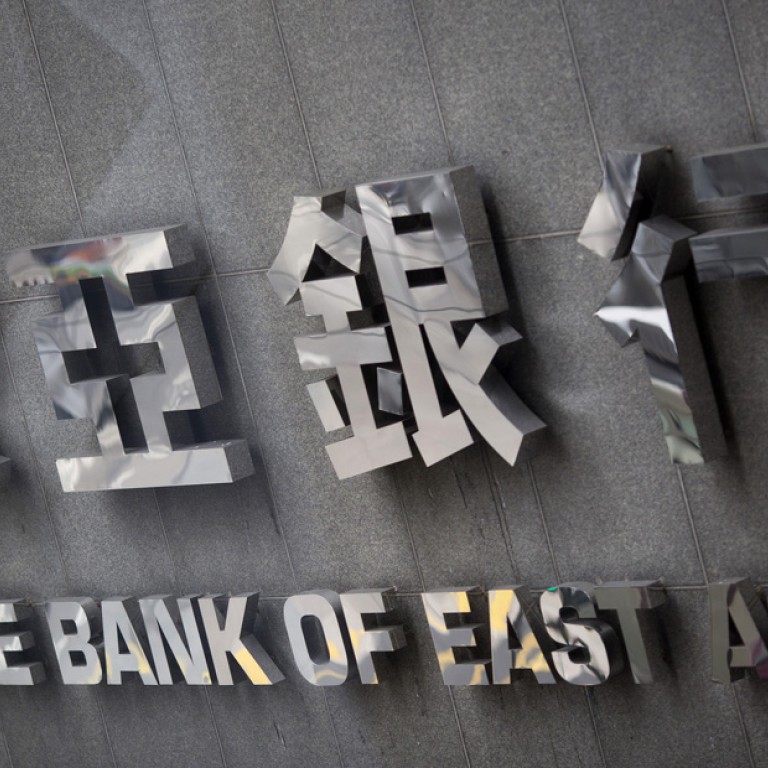
China exposure a double edged sword for Hong Kong banks
Concern over mainland assets among factors deterring suitors from bidding for HK banks
Hong Kong banks' mainland exposure has been a strong growth driver for income but has also been a drag on their valuation, say some experts.

Concerns over the quality of their mainland assets are among factors that have deterred potential suitors from bidding aggressively for Hong Kong banks.
In the latest industry deal, Guangzhou-backed Yue Xiu paid a price-book ratio of 2.08 to acquire 75 per cent of Chong Hing Bank. In comparison, China Merchants Bank in 2009 acquired Wing Lung Bank in a deal that put the price-book ratio at 2.9.
The city's largest family-controlled bank, Bank of East Asia, will only consider selling if it is offered a price-book ratio of 3 to 4, according to chairman and chief executive David Li Kwok-po.
The five largest mainland banks are trading at an average price-equity ratio of 4.82, from 5.47 six months ago.
Mainland bank valuations priced in possible credit losses and the impact of regulatory changes on margins in the event of interest rate liberalisation, said Matthew Phillips, a partner and financial services markets leader at PwC Hong Kong and China.
"Hong Kong banks don't get a full valuation for their China franchises because of those concerns," he said.
Lower funding costs in the city attract mainland firms to borrow in Hong Kong. Ratings firm Fitch estimates the Hong Kong banking system's total assets exposure to China at 35 per cent as of the end of last year, compared with 31 per cent in the first half.
Bank of East Asia's lending on the mainland made up 35 per cent of its outstanding loan portfolio last year, while it was 10.4 per cent for Hang Seng Bank, the two banks' annual results showed.
But some analysts believe foreign bidders look for Hong Kong banks with significant exposure and experience to operate on the mainland so they can play a bigger role in the cross-border business.
For example, Yue Xiu acquired Chong Hing in the hope of cornering a slice of the cross-border business, especially in the Pearl River Delta.
"The level of corporate governance and lending compliance are usually higher among Hong Kong banks then those on the mainland," said Daiwa Capital Markets analyst Grace Wu.
With the measures Hong Kong banks had initiated in offshore lending, mainland exposure was not necessarily a drag on valuations, she said.
